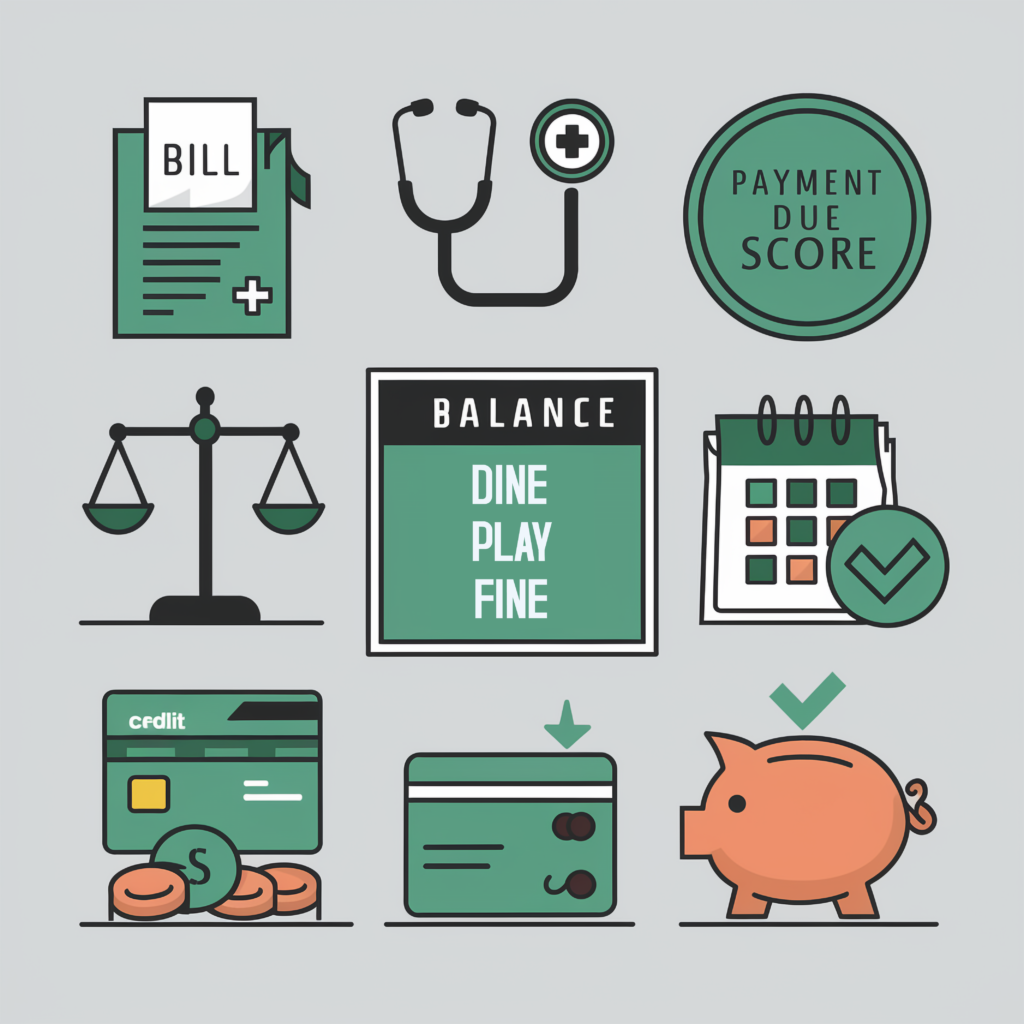
How to Keep Your Credit Score Clean Even If You Have Medical Bills
Medical bills can be overwhelming, and their impact on your credit score is often a concern. While medical debt does have the potential to affect your credit score, there are ways to manage it effectively and keep your credit in good standing. Here are ten strategies to help you navigate medical bills without damaging your credit.
1. Check Your Credit Report Regularly
Ensure that your medical bills are accurately reported on your credit report. Errors can lead to a lower score, so dispute any inaccuracies immediately to prevent unnecessary damage to your credit.
2. Set Up a Payment Plan
If you can’t pay your medical bills fully, work with your healthcare provider to set up a manageable payment plan. Consistently making these payments can help keep your debt under control and off your credit report.
3. Negotiate Medical Bills
Before your bill reaches collections, negotiate with the hospital or doctor’s office. You can lower the amount you owe, which helps prevent your debt from negatively impacting your credit.
4. Use Medical Credit Cards Carefully
Medical credit cards can be an option for paying large bills, but be cautious. Ensure you can pay off the balance within the promotional period to avoid high-interest charges affecting your credit score.
5. Explore Financial Assistance Programs
Many hospitals offer financial assistance or charity care programs. Qualifying for these can reduce or eliminate your medical bills, preventing them from affecting your credit.
6. Pay Attention to Your Insurance
Make sure your insurance is billed correctly. Sometimes, errors in billing can leave you with a larger bill than expected. Please double-check that your insurance has paid its portion before you start making payments.
7. Communicate With Creditors
If your medical bills have already been sent to collections, communicate with the creditors. Sometimes, they may agree not to report the debt if you set up a payment plan.
8. Keep Your Credit Card Balances Low
If you use credit cards to pay medical bills, keep the balances low relative to your credit limit. High credit utilization can lower your credit score.
9. Avoid Taking on New Debt
While managing medical bills, try to avoid taking on new debt. This can help you focus on paying down existing debt and prevent your credit score from dropping.
10. Use a Medical Debt Consolidation Loan
If you have multiple medical bills, consider consolidating them into a single loan with a lower interest rate. This can simplify your payments and improve your credit score over time.
Handling All Types and Levels of Medical Bills
- Prioritize Payments: First, pay off the smallest or highest-interest medical debts to reduce overall financial strain.
- Seek Professional Help: If medical debt becomes overwhelming, consider speaking with a financial advisor or a credit counselor specializing in medical debt.
- Review Statements Carefully: Ensure all charges on your medical bills are accurate and dispute any that seem incorrect.
- Request Itemized Bills: Sometimes hospitals charge for services you didn’t receive. An itemized bill allows you to verify each charge.
- Use Health Savings Accounts (HSAs): If you have an HSA, use it to pay for medical expenses, as these accounts offer tax advantages.
- Apply for Medicaid or Other Programs: If eligible, Medicaid or similar programs can help cover medical expenses, reducing out-of-pocket costs.
- Stay In-Network: Whenever possible, seek treatment from providers within your insurance network to avoid surprise out-of-network charges.
- Consider Medical Tourism: For significant procedures, some people opt to receive treatment in countries where healthcare is more affordable.
- Check for Billing Errors: Ensure your bill doesn’t include double charges or services you didn’t receive.
- Maintain Good Communication: Always contact your healthcare providers and insurers to ensure all bills are handled appropriately.
Using these strategies, you can better manage medical bills while protecting your credit score, ensuring that medical debt doesn’t derail your financial future.
🌐 Sources
- experian.com – How to Improve Your Credit Score Fast
- broadviewfcu.com – 10 Things You Can Do To Improve Your Credit Score
- swbcmortgage.com – 10 Ways to Improve Your Credit Score
- investopedia.com – How to Improve Your Credit Score Fast
- equifax.com – How to Improve Your Credit Score
- aarp.org – 5 Proven Ways to Boost Your Credit Score